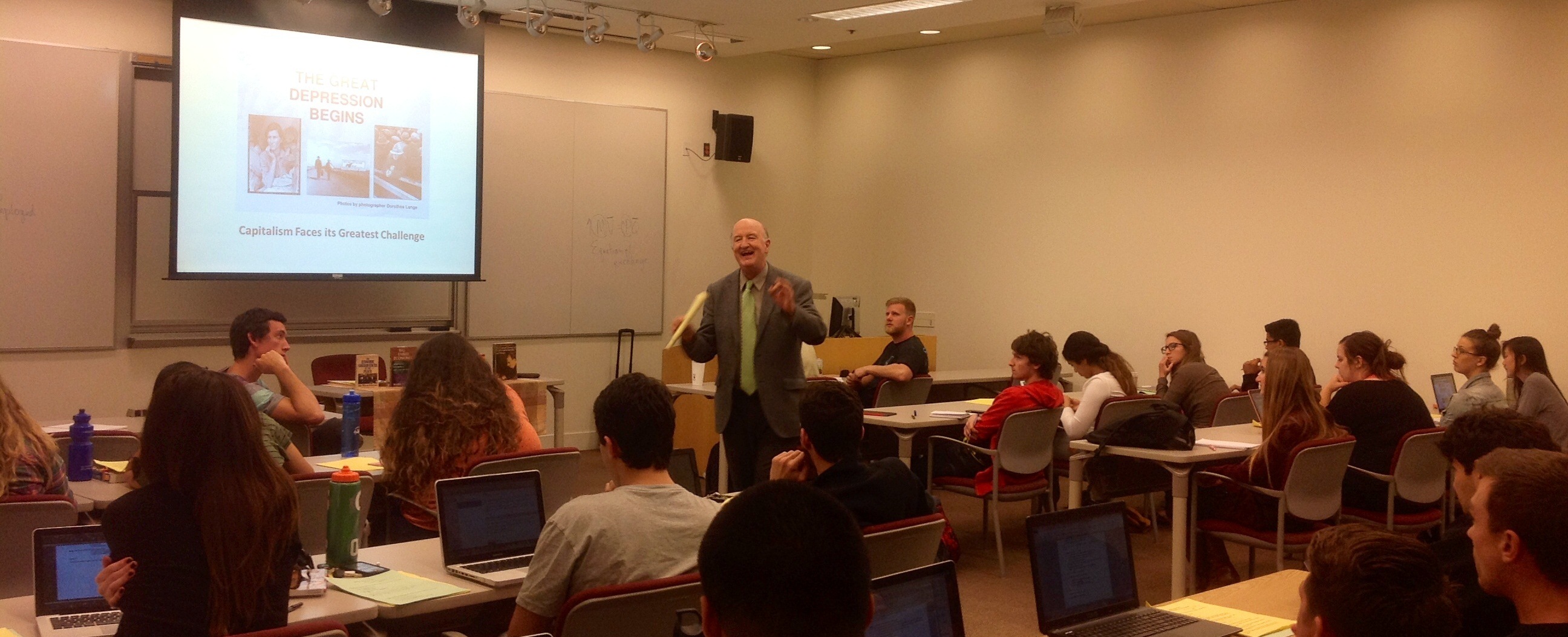
Leading economist Mark Skousen, Ph.D., a new Presidential Fellow at Chapman University, teaches a class in political economic history.
Course catalogs can’t list everything you want to know about the classroom experience. So come looky-loo with us in Class Act, a feature that takes readers to the classroom. This month we visit Modern Political Economy: Who’s Winning the Battle of Ideas?, taught by Presidential Fellow Mark Skousen. Have a Class Act suggestion? Send it to pr@chapman.edu.
She could have been in Hawaii. With friends. At the beach.
But economics major Lianne Chung ’14 chose to spend her winter Interterm break in a Beckman Hall classroom studying political economic history, learning about the likes of Adam Smith, Karl Marx, Ludwig von Mises, John Maynard Keynes and Milton Friedman.
“I actually was going to stay home until I saw this course,” the Honolulu native says. “I read the course description online and I thought it would be really interesting. And I saw who was teaching it.”
That professor, the clincher for Chung to give up her winter break, is nationally known investment expert and economist Mark Skousen, Ph.D., who was named a Presidential Fellow at Chapman University in December. A Forbes columnist and author of more than 20 books on investing and economics, Skousen writes an award-winning financial newsletter, Forecasts & Strategies, produces the annual FreedomFest conference in Las Vegas and is a leading voice for the principles of free-market capitalism.
He has also been the most vocal proponent for having the economic statistic gross output released on a quarterly basis, in companion with the traditional release of Gross Domestic Product (GDP) reports. In spring the Bureau of Economic Analysis will start releasing the statistic each quarter. Gross output measures total sales at all steps in the production process, capturing a picture of how money circulates through the economy from raw resources to final products. Skousen has long argued that it is a better predictor of what is really happening in the economy and what may be just around the financial corner.
“This is really a breakthrough in supply-side economics,” Skousen says. “If we can measure the spending at all stages of production, we get a better understanding of economic activity.”
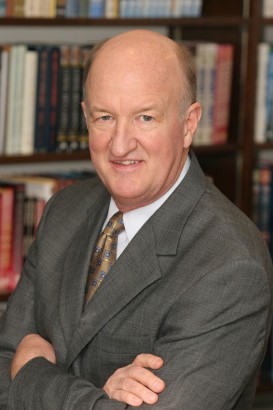
Economist Mark Skousen, Ph.D., was recently named a Presidential Fellow at Chapman University.
Skousen is looking forward to April when the government releases GO with GDP for the first time. Meanwhile, all those endeavors and activities are imbuing Skousen’s teaching. His first course at Chapman was “Modern Political Economy: Who’s Winning the Battle of Ideas?” Students say they enjoy Skousen’s style of weaving the human side of economics into the discipline’s history.
“There are a lot of real-world applications. He brings a lot of that to the table,” says Matt Simon ’15, a business major with an emphasis in international business. “Seeing both sides is really refreshing.”
On a recent afternoon, Skousen’s class reviewed the previous week’s toughest midterm questions, took a quick quiz on the previous night’s readings and heard a lively lecture on Keynes. In addition to a discussion of Keynes’ theory of government intervention to moderate boom and bust cycles, Skousen also described the British economist’s skill as a money manager and his landmark book,
The Economic Consequences of the Peace, which predicted Germany’s vengeful reaction to The Treaty of Versaille.
“He was brilliant,” Skousen says, although admittedly not of his school of economics. By the way, he tells his students in a quick side note, Keynes was fascinated with the hands and handshakes of world leaders. Seriously, look it up.)
“Here’s what he’d do,” Skousen says, demonstrating by walking through a mock introduction with a student, shaking his hand and then peering at it for just a moment. “Hmm. Hmm.”
Students say such moments put life into what some historians have called the dismal science, and what by necessity is a compressed time schedule during interterm, which runs Jan. 6 through Feb. 1. Interterm classes typically meet three or four days a week in large time blocks. For Chung, a little whimsy makes all the difference.
“I like the stories he tells,” she says. “You can tell he’s really passionate and knowledgeable about his subject. … It doesn’t feel like four hours.”
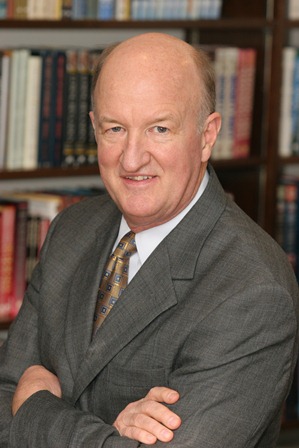
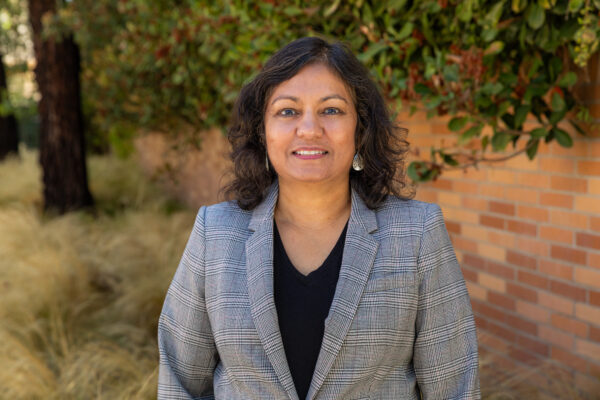
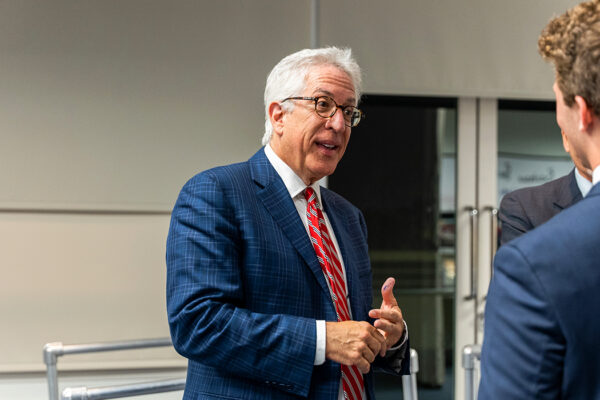
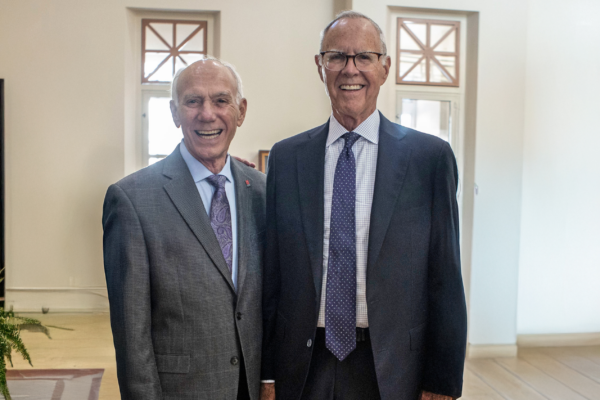

Add comment